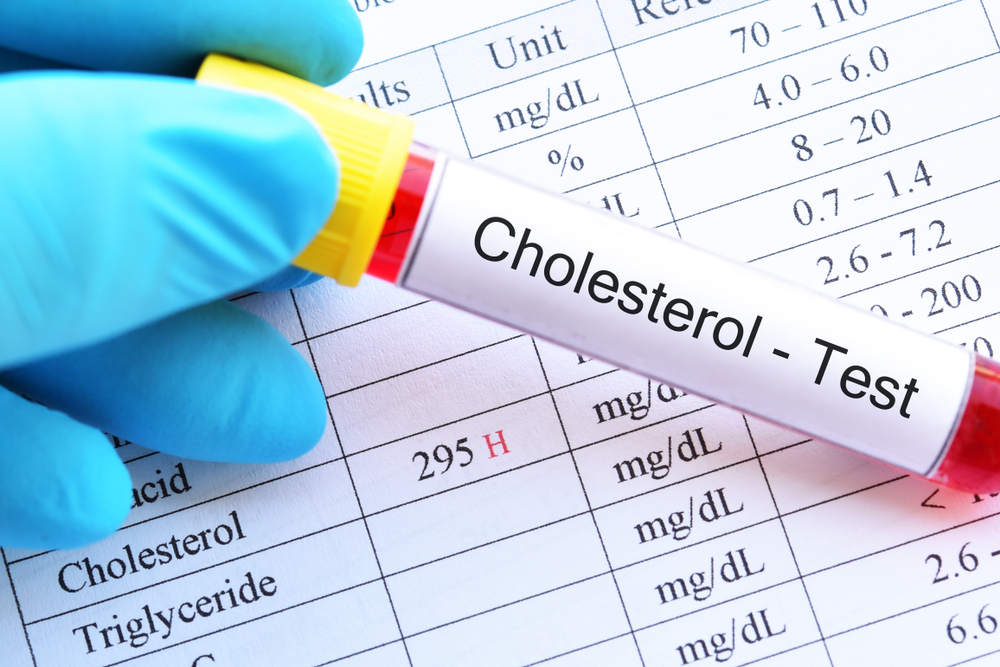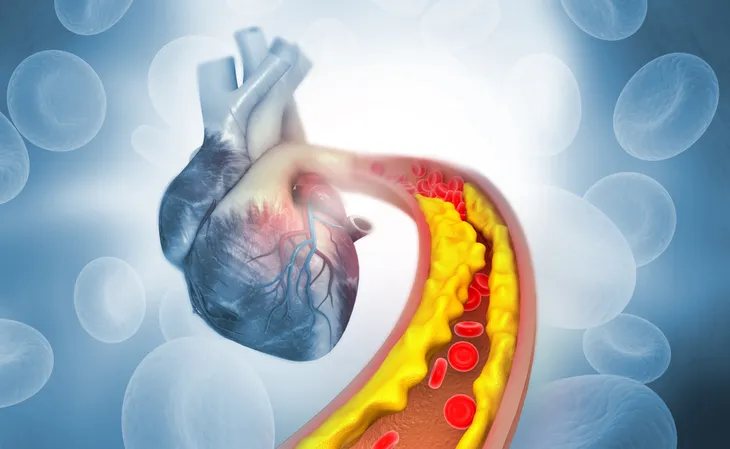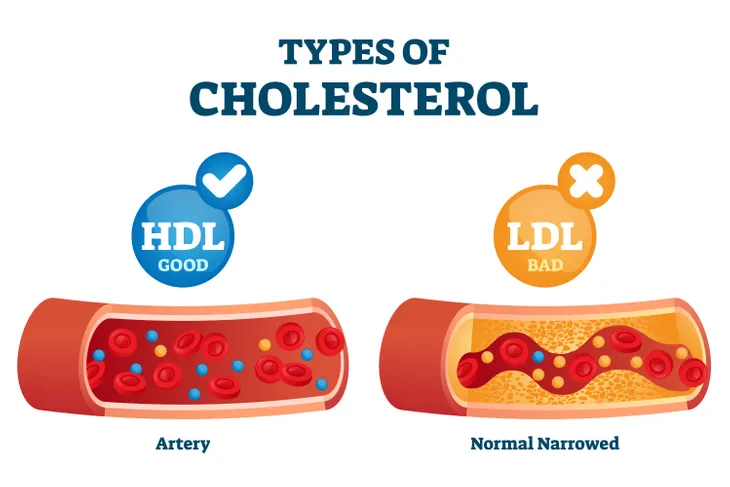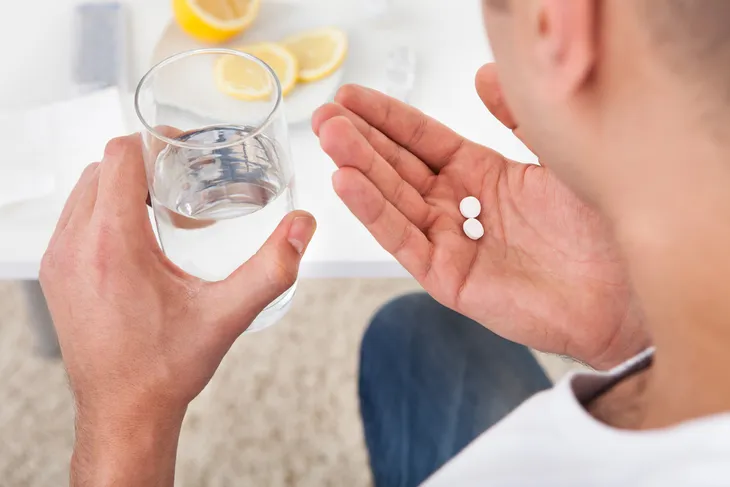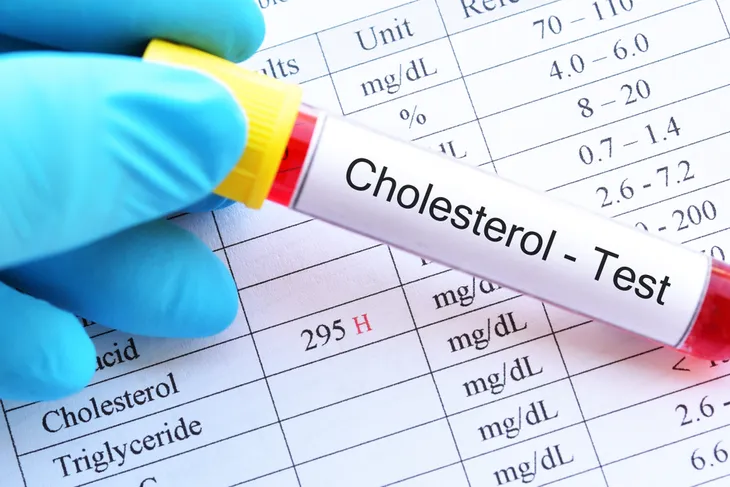If you are due for your annual doctor visit it also might be time for a cholesterol check. According to the Centers for Disease Control and Prevention (CDC), healthy adults should have their cholesterol checked every 4 to 6-years. Those with heart disease, diabetes, or a family history of high cholesterol should have it checked more often.
There are so many common myths and misconceptions about cholesterol. It’s a substance in our body that has been talked about in such a negative way that many of us have forgotten that it actually serves a positive purpose. It’s time to demystify cholesterol and learn the truth behind this substance and why our body needs it.
All Cholesterol Is Bad
Alright, it’s time to stop the rumor that all cholesterol is bad for our health. According to the CDC, “Your body needs cholesterol to perform important jobs, such as making hormones and building cells.”
While high levels of cholesterol are associated with an increased risk of heart disease, if we didn’t have any cholesterol we couldn’t survive.
Cholesterol Explained
Cholesterol is carried by two types of lipoproteins. The first is low-density lipoprotein (LDL), which “carries cholesterol from the liver to cells, where it is used in several processes,” says Medical News Today. LDL has been named the bad cholesterol because it is the type of lipoprotein associated with an increased risk of heart disease.
High-density lipoprotein (HDL) is named the good cholesterol, “because it transports cholesterol back to the liver. Once there, cholesterol is removed from the body, thereby reducing cardiovascular risk,” continues the source.
Eating Cholesterol Causes High Cholesterol
This is a tough statement to unravel. According to Dr. Lajoie from Medical News Today, “the cholesterol one consumes does not directly correlate with cholesterol levels.” You can eat simple carbohydrates and sugar and have an increase in your cholesterol levels. The source also says that sedentary people are more likely to see elevations in their cholesterol when they eat cholesterol compared to those who exercise.
What we do know is that foods with high cholesterol also have a lot of saturated fat. “Saturated fats can make your cholesterol numbers higher, so it’s best to choose foods that are lower in saturated fats. Foods made from animals, including red meat, butter, and cheese, have a lot of saturated fats,” reports the CDC.
If You Aren’t Overweight You Can’t Have High Cholesterol
High cholesterol is more common in those who are overweight but anyone can have it. One factor that can play into cholesterol levels is genetics.
Some people can be born with a genetic tendency to process cholesterol inefficiently, says Medical News Today. This is called familial hypercholesterolemia and is found in 1 in 200 people says the source.
Factors That Control Cholesterol Levels
Even people who are a healthy weight can have high cholesterol. Your weight is controlled by metabolism and the calories you take in and burn.
Your cholesterol levels are controlled by other sources, like genetics and other factors. Outside of the genetic factors, it’s food, exercise, smoking, alcohol, medications, and thyroid function that really play a factor in your cholesterol levels.
High Cholesterol Causes Symptoms
Unfortunately in most people, high cholesterol shows no signs or symptoms. If it did, diagnosing high cholesterol would be much easier than the standard blood test. You might have no symptoms of high cholesterol until you have a devastating stroke or heart attack. “Occasionally, some people develop yellowish growths on their skin called xanthomas, which are cholesterol-rich deposits. People with xanthomas may have high cholesterol levels,” says the CDC.
Since high cholesterol is a silent disease, it’s important to have your cholesterol levels checked by your doctor. You may be at the optime of health but have high cholesterol and need interventions to bring it down. Not knowing you have high cholesterol can lead to life-long complications and even an early passing through heart disease.
Medication Can Control High Cholesterol
There is a class of medications called statins. These medications are effective at lowering your cholesterol levels but they can’t be the only strategy you use to stay healthy. “If you eat what you want and consume calories to excess, you will gain weight. When you gain too much weight, especially around your belly area, you can develop a condition called metabolic syndrome, which is a prediabetic state” says Dr. Greenfield from Medical News Today.
You still need to eat healthily and stay conscious of your calorie intake even if you are on a statin medication. These drugs work to reduce LDL cholesterol, not help you lose weight. Talk to your doctor if you are concerned about your cholesterol and/or your weight.
High Cholesterol Only Happens in Older People
While high cholesterol is more common in older people it can and oftentimes begins during young adulthood or even in childhood. Familial hypercholesterolemia is high cholesterol that is inherited. When children have this genetic disorder they will be at a very high risk of heart disease. The condition is treated aggressively with medications.
If you have inherited high cholesterol there is so much more you can do than just take medications. “Establishing healthy eating and physical activity habits early can reduce the risk of cardiovascular problems over time,” says the American Heart Association. The source continues to say that making good health choices can reduce your risk of coronary heart disease.
High Cholesterol Only Happens in Men
This is one of those myths that needs to go away. Cholesterol levels don’t discriminate against women. Medical News Today reports that “the prevalence of high total cholesterol in U.S. adults was 11.4%. When considering men versus women, the prevalence of high total cholesterol was 10.5% in men and 12.1% in women.” These numbers show that women actually experience higher rates of high total cholesterol levels than men.
As women age and enter into menopause they begin to lose the protective effects of estrogens, continues the source. This increases their risk of heart disease and women develop the same risks as men. Women should be sure to have their cholesterol checked regularly and talk to their doctor if they have any concerns.
Everyone Should Have the Same Cholesterol Levels
Not everyone should have the same target cholesterol levels. There are several factors that play into what your ideal level should be. If you have a history of stroke or heart attack then your target cholesterol level is based on that information to reduce the likelihood of further damage. Your doctor will assess if you are also at risk for developing these or other conditions to determine the best cholesterol range for your body.
Dr. Robert Greenfield, a board-certified cardiologist, lipidologist, and internist at MemorialCare Heart & Vascular Institute at Orange Coast Medical Center in Fountain Valley, CA told Medical News Today, “For those of us who have not had any cardiovascular problems, the LDL cholesterol (the ‘bad’ cholesterol) should be less than 100 milligrams per deciliter (mg/dl). But if you have heart or vascular disease — history of heart attack, stroke, or other arterial vascular disease — and especially if you have diabetes, the LDL cholesterol target should be less than 70 mg/dl, if not lower.”
Switching Out Your Butter for Margarine Will Lower Cholesterol
Here is a myth that does hold some truth. Butter is high in saturated fat and does contain some trans fat. Which raises LDL cholesterol and can be a contributing factor to atherosclerosis, says the American Heart Association. But switching over to that tub of hard margarine won’t be a fast fix that you might be looking for. Margarine also has saturated and trans fat.
The best switch would be to a liquid or soft margarine. This type of margarine is made with vegetable oil and has less saturated and hydrogenated fat than hard margarine and butter. This is a great move towards healthier choices but making one move like this won’t be the cure to high cholesterol. You’ll need to incorporate other changes like physical activity and diet changes.
Once You Have High Cholesterol There Is Nothing You Can Do About It
If there is one takeaway from reading this article it’s that you don’t have to accept high cholesterol as part of your life. There are so many different ways you can work to lower your cholesterol and ultimately protect your heart and body against heart disease. Here are the best ways to lower your cholesterol:
- Maintain a healthy weight
- Exercise regularly
- Eat a healthy diet
- Take medications as prescribed by your doctor
- Don’t smoke
- Avoid high alcohol consumption
